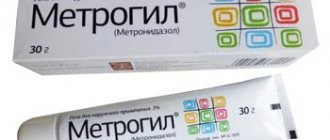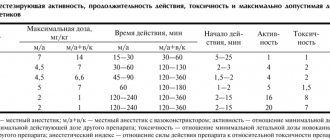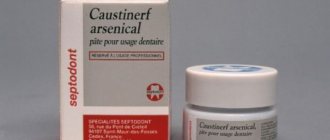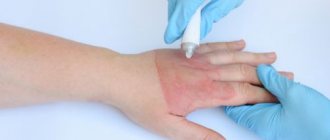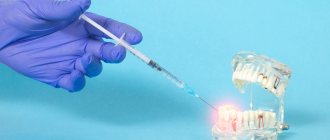Human chewing organs are constantly exposed to adverse factors. Biting nuts and seeds, eating hot foods immediately after cooled ones and vice versa, bad habits, abuse of sour and sweet foods, the destructive work of some microorganisms living in the oral cavity - all this can lead to damage to the enamel that protects the tooth tissue. As a result, dentin becomes defenseless against bacteria that destroy it, and this leads to the appearance of an ever-deepening carious cavity. Unfortunately, this process is irreversible, and, ultimately, the resulting hollow reaches the pulp chamber, in which a focus of inflammation then appears.
The inflammatory process that begins in the dental pulp, as a rule, quickly makes itself felt with sharp pain, worsening at night, and sometimes becoming unbearable at the slightest temperature or mechanical influence.
Of course, the best way to combat dental pulp inflammation is to prevent it. Caries should not be started before pulpitis develops. It is necessary to visit the dentist occasionally for a preventive dental examination. Moreover, sometimes caries itself cannot be detected in a timely manner - often a dental cavity becomes noticeable only when it is no longer possible to install a permanent filling without pulp removal.
Diclofenac for toothache
Unfortunately, people often miss the early stages of tooth decay. Many of them, due to fear of the dentist's office, find many real and far-fetched reasons to postpone going to the dentist, and thereby aggravate their problems. As a result, they have to endure excruciating pain.
The appearance of pain means that you can no longer postpone a visit to the doctor. After all, pain not only turns a person’s life into torment. The development of inflammation can lead to complications from which you can lose not only your tooth, but also your life. However, in case of acute toothache, a person does not always have the opportunity to immediately go to the dentist’s office. And the only way out in such a situation is medication to temporarily relieve pain symptoms.
Most often, non-steroidal anti-inflammatory medications are used for this purpose. They eliminate the symptoms of the inflammatory process, including pain. These drugs include diclofenac, which is widely used in the treatment of certain inflammations. In this case, diclofenac will help for toothache .
How do diclofenac tablets work for toothache?
This drug, which is a derivative of phenylacetic acid, like other non-steroidal drugs used in the case of inflammation, reduces the amount of prostaglandins in the area of the inflammatory process. These substances are directly related to painful sensations, as they transmit appropriate chemical signals to pain receptors. The medicine also limits the migration of white blood cells into the inflammatory area and releases oxygen radicals. As a result, the medicine reduces pain and relieves other symptoms of inflammation, such as swelling and fever.
Due to its pharmacological properties, diclofenac is used against a variety of inflammatory diseases that are accompanied by pain. This medication, for example, is effectively used for radiculitis, arthritis, and bruises.
Diclofenac does not have selectivity, and, once in the body, it acts immediately on all existing foci of inflammation, regardless of where they are located. Thus, this medicine can be used when a tooth hurts, as well as for other diseases of the oral cavity - for example, gingivitis or periodontitis. This medication is also used after oral surgery to prevent complications.
Although the toxicity of diclofenac is low, exceeding the dosage and long-term use can lead to adverse reactions.
The liver decontaminates the drug. The resulting products are removed from the body mainly through urine. A smaller part is excreted into the intestines with bile and removed with feces.
Diclofenac is a strong pain reliever, the effect of which occurs in about half an hour. The medicine can significantly reduce toothache for several hours. Thus, the patient will be able to wait for a trip to the dentist without unnecessary suffering.
Being a strong anti-inflammatory drug, diclofenac, however, in the case of toothache, acts solely as an analgesic, without curing the inflammation itself. Using diclofenac does not eliminate the need to visit the dentist. Those who take painkillers for a long time instead of going to the dentist’s office do not solve their problem and only put their body at risk.
Diclofenac is produced in various forms. These include:
- oral tablets;
- capsules that dissolve in the gastrointestinal tract;
- solutions for injections;
- suppositories inserted into the rectum;
- ointment for external use for bruises and so on.
Tablets are one of the most popular options for the drug - unlike injections, the patient can take the tablets himself, without the help of a doctor, nurse or other person who knows how to give injections.
There are currently two types of diclofenac tablets available:
- ordinary tablets, the amount of the main active ingredient in which is twenty-five milligrams;
- extended-release tablets containing fifty milligrams of the drug.
As the name suggests, tablets of the second type are characterized by a longer period of action. Once in the gastrointestinal tract, the tablet dissolves, after which the drug is absorbed, which further affects the areas of inflammatory processes in the body.
Diclofenac tablets for toothache
It is recommended to take diclofenac tablets a maximum of three times a day. The drug should be taken after eating. Taking the medicine on an empty stomach is not advisable.
You can take not only traditional diclofenac tablets orally, but also the drug in capsule form. The advantage of capsules is the speed of the effect, and the disadvantage is the relatively short duration of action.
Diclofenac injections for toothache and other methods of taking the drug
The advantage of injections of this drug is that this type of drug treatment provides the most rapid relief of painful sensations. Therefore, injections are good when it is necessary to dull acute pain as soon as possible. To achieve the desired effect it usually takes from fifteen minutes to half an hour. Such a quick result is due to the fact that the medicine is directly introduced into the blood, and no time is required for its absorption.
As a rule, diclofenac injections are used during inpatient treatment of a patient - in situations where surgical intervention is required.
The downside of diclofenac injections is that with this use of the drug the analgesic effect quickly wears off. The duration of action of ice is no more than four hours. From this point of view, other forms of medication are more preferable.
Diclofenac suppositories for toothache
This dosage form of this analgesic can be used in cases where the patient for some reason cannot take it orally. Suppositories containing an analgesic and having a conical shape are inserted into the anus. To ensure better absorption of the drug, the patient should spend the next half hour lying down after the procedure. The recommended daily dose is no more than one suppository. The advantage of suppositories is their ease of use and speed of action - the analgesic effect occurs earlier than in the case of tablets.
Pharmacies sell suppositories containing varying amounts of diclofenac. Therefore, it is advisable to coordinate their intake with your doctor, who will determine the most optimal dosage and regimen.
Diclofenac ointment for toothache
This version of the drug is used as an external agent. Ointments are mainly used in case of joint pain, bruises, sprains, etc. In case of toothache, the only way to use gels and ointments is to apply them to the skin of the face in the area where the tooth hurts.
Description of the drug DICLOFENAC for systemic use
The dose is selected individually; it is recommended to use the drug in the minimum effective dose, with the shortest possible treatment period.
For oral and rectal use
Adults
When taken orally in the form of tablets of regular duration or rectally in the form of suppositories, the recommended initial dose is 100-150 mg/day. In relatively mild cases of the disease, as well as for long-term therapy, 75-100 mg/day is sufficient. The daily dose should be divided into several doses.
When taken in the form of extended-release tablets, the recommended initial dose is 100 mg 1 time / day. The same daily dose is used for moderately severe symptoms, as well as for long-term therapy. In cases where the symptoms of the disease are most pronounced at night or in the morning, it is advisable to take extended-release tablets at night.
To relieve night pain or morning stiffness
in addition to taking the drug during the day, diclofenac is prescribed in the form of rectal suppositories before bedtime; in this case, the total daily dose should not exceed 150 mg.
With primary dysmenorrhea
the daily dose is selected individually; usually it is 50-150 mg. The initial dose should be 50-100 mg; if necessary, over several menstrual cycles it can be increased to 150 mg/day. The drug should be started when the first symptoms appear. Depending on the dynamics of clinical symptoms, treatment can be continued for several days.
In elderly patients (65 years and older)
no adjustment of the initial dose is required.
In weakened patients, patients with low body weight
It is recommended to adhere to the minimum dose.
The drug should be used with particular caution in patients with diseases of the cardiovascular system (including uncontrolled arterial hypertension) or a high risk of developing cardiovascular diseases
. If long-term therapy (more than 4 weeks) is necessary in such patients, the drug should be used in a daily dose not exceeding 100 mg.
Children aged 1 year and older
The drug is prescribed in a dose of 0.5-2 mg/kg body weight/day (in 2-3 doses, depending on the severity of the disease). For the treatment of rheumatoid arthritis
the daily dose can be maximally increased to 3 mg/kg (in several doses). The maximum daily dose is 150 mg.
The drug in the form of extended-release tablets should not be used in children and adolescents under the age of 18 years.
For parenteral use
Adults
Injected deep into the / m. Single dose - 75 mg. If necessary, repeated administration is possible, but not earlier than after 12 hours.
Duration of use is no more than 2 days, if necessary, then switch to oral or rectal use of diclofenac.
In severe cases (for example, with colic), as an exception, 2 injections of 75 mg each can be given, with an interval of several hours (the second injection should be carried out in the opposite gluteal region). Alternatively, IM administration once a day (75 mg) can be combined with diclofenac in other dosage forms (tablets, rectal suppositories), and the total daily dose should not exceed 150 mg.
For migraine attacks
Diclofenac is recommended to be administered as early as possible after the onset of an attack, IM at a dose of 75 mg, followed by the use of suppositories at a dose of up to 100 mg on the same day, if required. The total daily dose should not exceed 175 mg on the first day.
In elderly patients (65 years and older)
no adjustment of the initial dose is required. In weakened patients and patients with low body weight, it is recommended to adhere to the minimum dose.
The drug should be used with particular caution in patients with diseases of the cardiovascular system (including uncontrolled arterial hypertension) or a high risk of developing cardiovascular diseases
. If long-term therapy (more than 4 weeks) is necessary in such patients, the drug should be used in a daily dose not exceeding 100 mg.
Children and teenagers under 18 years of age
Diclofenac should not be used intramuscularly in children and adolescents under 18 years of age due to the difficulty of dosing the drug.
How to use diclofenac for toothache
The dose of this medication is set by the doctor in accordance with the patient’s condition and his individual characteristics. When a tooth hurts, the following options for using the medication are possible:
- Regular oral administration of tablets or capsules.
- Intravenous and intramuscular injections.
- Rectal administration of suppositories.
- External use of ointments in the area of a diseased tooth.
An adult patient can take a maximum of one hundred milligrams of diclofenac at a time. The number of medication doses per day is determined by the form of release and method of administration:
- The maximum permissible daily amount of medication in the form of conventional oral tablets is from seventy-five to one hundred and fifty milligrams. This dose is divided into three or four doses. When the medicine has had the desired effect, the dose is reduced. For patients of childhood and adolescence, the dosage is calculated based on the fact that there should be two milligrams of the drug per 1 kg of weight.
- For injections prescribed for severe toothache and administered intravenously and intramuscularly, the daily dose of diclofenac is seventy-five milligrams. The maximum duration of a course of injection therapy is five days. In the future, injections are replaced with tablets or suppositories.
- External agents are applied two to four times a day. A single amount of ointment or gel should be from two to four grams.
- When using diclofenac suppositories, the dosage regimen is set so that a single amount of the active drug is 50 milligrams. Usually one or two suppositories are prescribed per day.
Contraindications and non-standard reactions from Diclofenac
The instructions indicate that the medication is not prescribed:
- in case of individual intolerance to the component composition;
- bleeding from the gastrointestinal tract, ulcers, perforation and inflammation of the digestive canal;
- bronchial asthma arising under the influence of NSAIDs;
- liver, kidney, heart failure.
Diclofenac is contraindicated for proctitis (in suppositories), after coronary artery bypass surgery, during pregnancy and for children under 6 years of age. Ointments and gels are not used for skin damage. Suppositories and tablets are prescribed to patients over 14 years of age. Increased caution is needed when treating patients with herpetic keratitis, children, the elderly, and nursing women.
The following side effects may occur when taking tablets:
- dyspeptic disorders;
- erosions and ulcers of the gastrointestinal tract;
- bleeding in the digestive tract;
- drowsiness, unreasonable irritability;
- attacks of dizziness, allergies.
Diclofenac drops can provoke:
- burning, cloudiness of the cornea;
- decreased visual acuity (temporary);
- allergies, iritis.
Intramuscular administration of the drug is sometimes accompanied by unpleasant sensations, and in difficult cases leads to tissue necrosis and abscess.
When should you not use diclofenac for toothache?
Violation of the optimal regimen for taking the drug, exceeding the dose and permissible duration of treatment, and the presence of individual indications can lead to a number of negative effects. These include:
- feeling of general loss of strength;
- hair loss;
- the appearance of swelling;
- cough;
- toxic inflammation of the colon mucosa, which results in stool disorders and flatulence;
- vomit;
- inflammation of the oral mucosa;
- allergic reactions, usually manifested in the form of skin rashes and itching.
In addition, diclofenac can also negatively affect the nervous system, causing headaches, sleep disorders and depression.
The safest form of diclofenac is external agents based on it. Before taking other forms of this medication, you should consult a doctor who, based on your medical history, will make a conclusion about the admissibility or inadmissibility of using diclofenac. The main contraindications to diclofenac are:
- Asthmatic spasms of the bronchi against the background of nasal polyps.
- Kidney and liver pathologies.
- High blood pressure.
- Peptic ulcers of the gastrointestinal tract.
- Colitis.
- Increased potassium content in blood plasma.
Patients suffering from hemorrhoids should not take diclofenac suppositories. In addition, the drug is contraindicated in children under six years of age and women during the third trimester of pregnancy and while breastfeeding.
| Toothache medications | |
| Tablets for toothache Analgin for toothache Ketanov for toothache Nise for toothache Nimesil for toothache Analogues of Nimesil Diclofenac for toothache Took for toothache Ketonal for toothache Nurofen for toothache | Moment for toothache Ibuprofen for toothache Paracetamol for toothache Spazmalgon for toothache Tempalgin for toothache Citramon for toothache Aspirin for toothache Pentalgin for toothache Ketorol for toothache Folk remedies for toothache |

